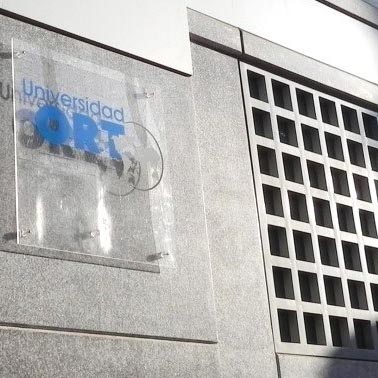The murder of a journalist in front of children and parents at a Christmas party at his son’s school is the latest example of why Mexico is considered to be one of the deadliest countries for journalists. Thanks to a $1 million grant from USAID, ORT University Mexico is working towards improving the situation.

Willing to take a risk to improve Mexico’s human rights – ORT Mexico University Rector Dr Moises Salinas.
The money means the university can launch its Empowerment Program of Civil Society Organizations in Human Rights in Mexico, a cutting-edge project through which it aims to train more than 120 human rights professionals in the six states bordering the USA.
Staff members from up to 40 non-government organisations working on issues such as the protection of journalists, assisting victims of human rights abuses, torture and forced disappearances will develop their professional expertise through undergraduate and post-graduate degree courses.
In addition they will receive individual counselling and their organisations will receive up to $20,000 to help them implement the action plans they will develop at the end of the three-year programme.
“This is the first time that there’s been a concerted effort to professionalise organisations working on human rights issues in a systematic way. It’s a cutting-edge project that will strengthen organisations in an integral way – both in terms of research and in organisational response. We’re sure it will have an important impact on one of the most serious problems that afflict our country,” said Dr Moises Salinas, Rector of ORT University Mexico.
The horrific Christmas party killing of Gumaro Perez brings the death toll of journalists in Mexico to at least 12 this year. Mr Perez was a crime reporter in the south-eastern town of Acayucan but the situation in the northern border states is as bad if not worse: the US State Department warnsagainst visiting half of them and advises only daylight travel and other precautions in most of the rest.
Mexico’s 11-year drug war has reportedly left more than 200,000 dead and another 30,000 missing.

Mexico’s northern states will be helped by the USAID-funded programme. Source: Committee to Protect Journalists
And corruption is particularly bad in the northern border region where drug cartels buy off local officials and police officers to protect and enforce their illicit interests.
“Anything goes because there’s so much chaos,” Dr Salinas said.
The ORT University Mexico programme is a structured response to that chaos.
“By studying together these professionals will learn to work together and this will result in a much greater impact than if each organisation works alone,” Dr Salinas said.
USAID’s grant is welcome recognition of ORT University Mexico’s leading role in the training of professionals in the country’s social sector. But with 2017 set to become Mexico’s bloodiest year since the government started releasing crime figures in 1997, there is a risk that it also places the ORT institution in the firing line.
“Ultimately the mission of ORT is to make a positive difference in people’s lives. If there’s a small risk to make such a difference we should be willing to take it,” Dr Salinas said.





